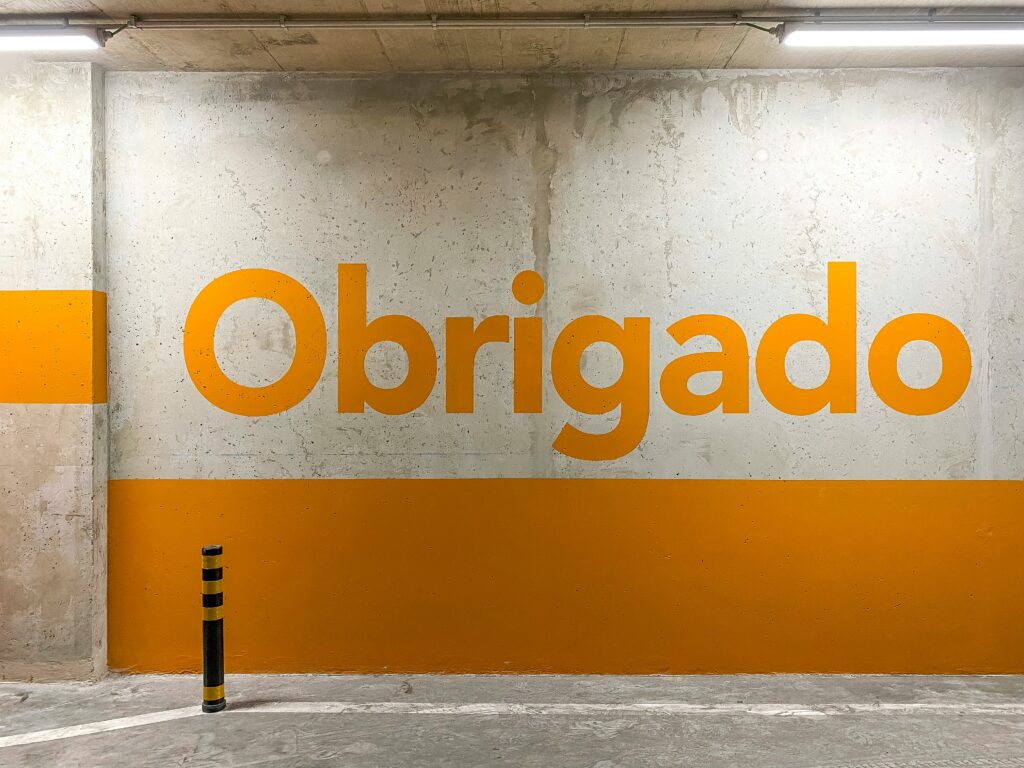ANA ARAÚJO
Translation: Jeffrey D. Stewart
Revision: Lynnea Hansen

On May 6, 2024, the PLD celebrated World Portuguese Language Day by embarking on a journey around the world with Marco Neves as he traced the history of the Portuguese language. In this session, we looked at words that have come from distant lands and are used daily by Portuguese speakers, in addition to words that came from our language and have reached the rest of the world, revealing the history of not just the Portuguese language but of the world itself.
Below is a summary of the ten words Marco revealed to us.
1. Esquerda
The word ezker in Basque is one of the few terms derived from that language, and the only surviving word from the Iberian Peninsula before Latin. The region’s Latin languages have original terms for “left,” such as izquierda in Spanish, esquerra in Catalan, and esquerda in Galician and Portuguese.
2. Lua
Of Latin origin, this word has a particularly interesting feature. In Portuguese and Galician, the word doesn’t have the sound of the letter “n.” However, in Castilian, it is luna, and in French, lune. In the early stages of Latin in the northwestern Iberian Peninsula, speakers began omitting the sounds represented by the letters “n” and “l.”
3. Luva
This word has ancient Germanic roots, derived from the language of the Goths and what we know today as “glove” in English.
4. Azul
Tracing back to Persian origins from a rock mined in Afghanistan known today as lapis-lazúli, the term made its way to Arabic and then to Latin with the same name. Lazúli became what is now azul, or the color blue in Portuguese.
5. Português
The Kingdom of Portugal adopted this northwestern Romance language, native to present-day Galicia and northern Portugal, as its official language, especially during the reign of King Dinis. The term português as a reference to the actual language was first used in the 15th century by Dom Pedro’s translator in the preface to his translation of Cicero.
Portuguese Beyond the Iberian Peninsula
6. Papiar
The diffusion of the Portuguese language throughout the world influenced many other regions and languages. One prime example is Cape Verde, where Cape Verdean Creole emerged out of a necessity for enslaved individuals to communicate with each other. This language then developed its own grammatical structures. Based in Cape Verdean Creole, the term papiar (to talk or speak) evolved into Papiamento, the official language of present-day Curaçao and Aruba.
7. Ureno
Swahili for “Portugal,” Ureno is what you would hear from more than 50 million people where this African language is spoken, including in Kenya, Uganda, and Tanzania, where Swahili is an official language. All indications seem to point to the words “18th Kingdom,” which is what local inhabitants heard from the Portuguese navigators who had come from the Kingdom of Portugal. Across the Indian Ocean, Portuguese became a common language used not only by the Portuguese people but by other Europeans and local populations to communicate with the Europeans. To this day, we see Portuguese influence in countries like Sri Lanka and hundreds of Portuguese words incorporated into other languages like Indonesian.
8. Ananás
This word is an umbrella term for all words that came from Brazil through the indigenous Tupi language. What’s curious about this term is that despite its Brazilian origins, it comes off as more banal in Portugal than in Brazil. Nonetheless, ananás represents the use of the Portuguese language in South America.
9. Fetiche
Deriving from feitiço in Portuguese, this term has had different meanings over time. While it was originally used in association with idolized objects discovered by Portuguese navigators along the Gold Coast, it became a term to describe magical effects. Following its adoption by Northern European writers and its dissemination to other languages, fetiche evolved into fétiche and fetish, respectively. The term then acquired more sexual connotations, and even broader meanings later.
10. Bué
Probably originating from Kimbundu, a Bantu language spoken in Angola, this term means abundance and prosperity. This term is very informal, and it gained prominence in Portugal during decolonization efforts as a reflection of population changes and 20th-century independence movements. The term’s presence in Lisbon demonstrates the Portuguese language’s intrinsic connection with Africa, where it only continues to grow. From the Roman Empire to the history of Africa, bué is a testament to how the Portuguese language reflects old narratives and how words are witnesses of world history.

Ana Araújo is a certified Cape Verdean Creole<>Portuguese interpreter with over 14 years of experience in the field. Prior to her career in interpretation, she worked in the international and finance department at a bank for 11 years across multiple continents. Ana holds a Bachelor’s degree in Portuguese with a minor in Business Administration from Florida International University.

Leave a Reply